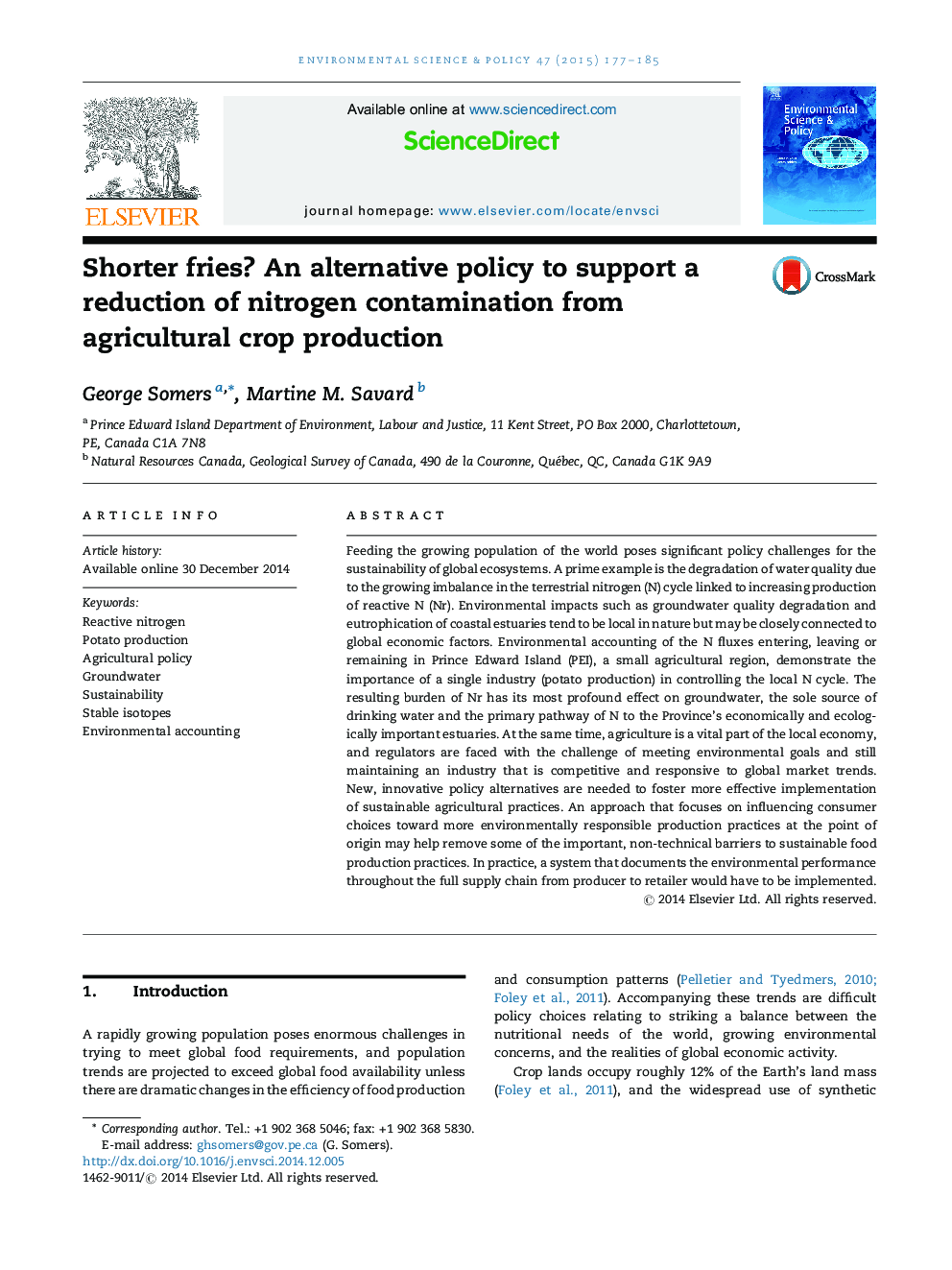| Article ID | Journal | Published Year | Pages | File Type |
|---|---|---|---|---|
| 7467604 | Environmental Science & Policy | 2015 | 9 Pages |
Abstract
Feeding the growing population of the world poses significant policy challenges for the sustainability of global ecosystems. A prime example is the degradation of water quality due to the growing imbalance in the terrestrial nitrogen (N) cycle linked to increasing production of reactive N (Nr). Environmental impacts such as groundwater quality degradation and eutrophication of coastal estuaries tend to be local in nature but may be closely connected to global economic factors. Environmental accounting of the N fluxes entering, leaving or remaining in Prince Edward Island (PEI), a small agricultural region, demonstrate the importance of a single industry (potato production) in controlling the local N cycle. The resulting burden of Nr has its most profound effect on groundwater, the sole source of drinking water and the primary pathway of N to the Province's economically and ecologically important estuaries. At the same time, agriculture is a vital part of the local economy, and regulators are faced with the challenge of meeting environmental goals and still maintaining an industry that is competitive and responsive to global market trends. New, innovative policy alternatives are needed to foster more effective implementation of sustainable agricultural practices. An approach that focuses on influencing consumer choices toward more environmentally responsible production practices at the point of origin may help remove some of the important, non-technical barriers to sustainable food production practices. In practice, a system that documents the environmental performance throughout the full supply chain from producer to retailer would have to be implemented.
Keywords
Related Topics
Physical Sciences and Engineering
Energy
Renewable Energy, Sustainability and the Environment
Authors
George Somers, Martine M. Savard,
